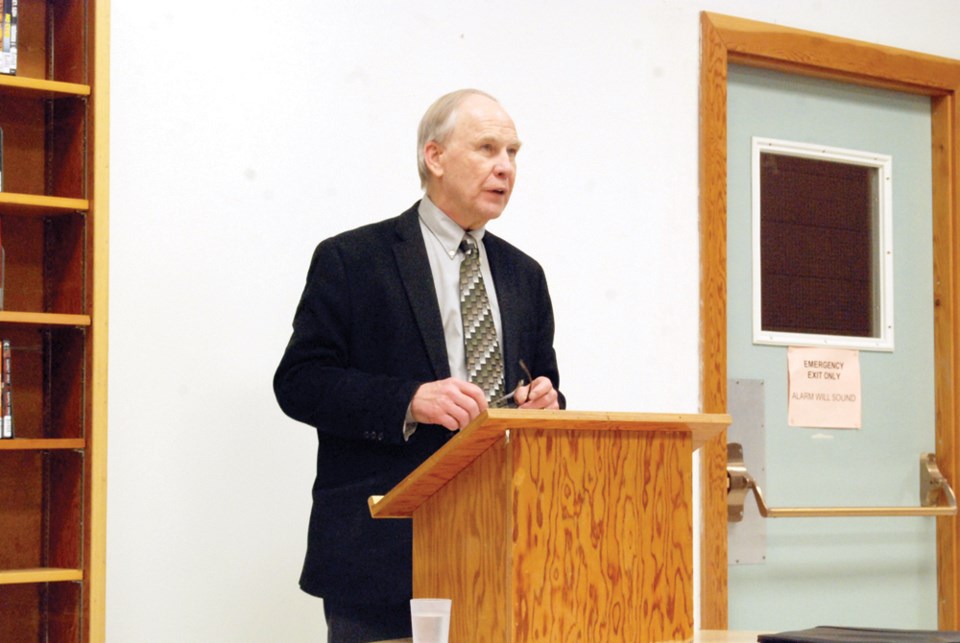It may seem like a big leap from St. Peter’s College to Provincial Court of Saskatchewan but that is exactly what the Honourable James Plemel did.
His academic career started in the halls of St. Peter’s College while growing up in St. Gregor. He wrapped up high school and completed his first year of university at St. Peter’s College and went on to law school before joining the Saskatchewan Law Society in 1975.
Plemel was invited back to St. Peter’s College for the third installment of the 2017-2018 speakers series on Jan. 17, speaking about his journey to Chief Judge as well as the Saskatchewan judiciary.
Growing up in rural Saskatchewan, Plemel says he was lucky to be part of a well-rounded community with kids getting together for impromptu ball and hockey games on the weekends while also working hard on the family farm.
St. Peter’s College offered that well-roundedness as well, with educators encouraging everyone to participate in both sports and the arts whether you were good at it or not, he laughs.
Professors made sure that students were instilled with a well-rounded education, says Plemel, and with that a healthy curiosity and sense of adventure.
“I wanted to get out there and see things for myself.”
Working in many different courts across the province, Plemel has seen the different aspects of Saskatchewan society, including how indigenous issues have a direct result of colonization.
He and other Saskatchewan judges see it first hand.
But Plemel also sees the aboriginal court workers who are working towards justice programs for their communities, he says.
The path of criminality and justice does not start at the court room doors but ends there. There is a whole different path that has lead a person to those doors and we need to look at that path before we can improve or decrease the use of our court system, he says.
“Healthy societies are created through positive activities and healthy communities. In healthy communities there are less conflict and healthy communities need to be nurtured,” said Plemel.
Healthy communities include factors beyond the accessible food, water, and housing, and includes things like positive activities.
“After you have the basics then you need some of the extras to get young people happy and healthy and vibrant...Get young people involved in sports, drama, theatre, education, healthy things,” said Plemel.
A lot of getting those things to young people depends on volunteers and Plemel took time during his speech to acknowledge people who do contribute to the health of their community through volunteerism.
In the aboriginal communities that Plemel has visited, leaders are working both inside and outside the community to build healthy communities. There is still a divide between aboriginal and non-aboriginal communities that can and should be bridged.
“Especially where you have communities close together...it makes very good sense for the leaders in both of those communities to try to have cultural and social events that bring them closer together so that there is a better understanding,” said Plemel.




